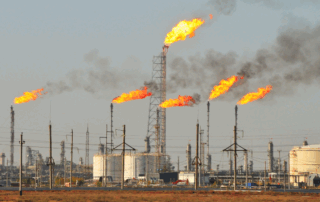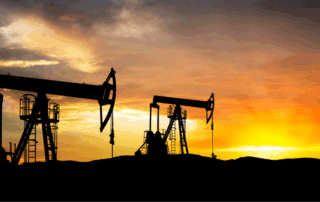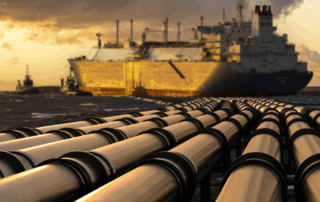Natural Gas Futures And Speculation In Energy Markets
Natural gas futures are pivotal in commercial energy retail pricing, particularly in deregulated markets where suppliers offer various fixed-price options. Understanding how speculative trading, hedging, and overall market outlook drive these futures markets is essential for energy buyers to manage cost risk and time supply contracts effectively.
How Weather Affects Energy Markets: Risks, Volatility, and Strategic Planning
In today’s interconnected energy markets, weather is often the main driver of short-term price swings and long-term infrastructure challenges. For commercial energy customers and brokers, understanding this connection is essential to navigating energy procurement and mitigating risk.
Global Energy Supply: Trends Shaping The Future Of Energy Markets
Global energy markets in 2025 are being reshaped by a powerful mix of geopolitical risks, surging demand from AI and electrification, and record renewable growth. For businesses and energy brokers, understanding these supply-side trends is essential to anticipate volatility, control costs, and align procurement strategies with a rapidly evolving market.
The Role of Natural Gas In Supporting Decentralized Grids
As decentralized grids and microgrid technologies continue to grow, natural gas is playing an increasingly critical role in supporting energy reliability and independence. By complementing intermittent renewable resources like wind and solar, natural gas generation helps stabilize decentralized systems. In this article, we’ll explore how both conventional and renewable natural gas (RNG) are shaping the future of distributed energy networks.
LNG: The Role Of Liquified Natural Gas In The U.S. Energy Economy
As global demand for liquefied natural gas (LNG) rises, the United States has emerged as a key player in reshaping the global energy market. Understanding LNG’s growing role in domestic supply, pricing, and infrastructure is critical for businesses navigating today’s evolving energy landscape.
A Consumer’s Shopping Guide To Seasonal Energy Pricing
Seasonal patterns play a major role in shaping electricity and natural gas prices for commercial energy buyers. Understanding how these patterns affect rates and when to lock in a deal can lead to major cost savings and more predictable energy budgets.





